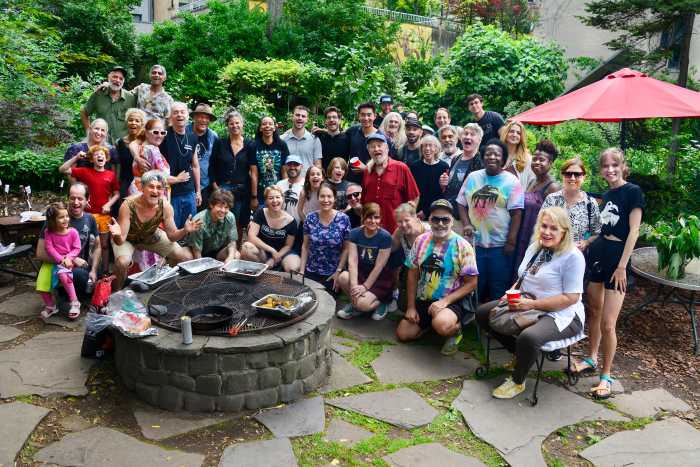BY SAM SPOKONY
A new state law closed the legal loopholes that allowed illegally converted hotels to grow untouched throughout New York City once it went into effect on May 1. The law strengthened enforcement by explicitly defining an illegal, transient rental in a residential apartment as one that lasts less than 30 days. The law also redefined a critical section of language that had made it impossible to prosecute owners of residential buildings in which less than half of the units were being used as illegal hotel rooms. Now, a single transient unit puts an entire building in violation of the statute.
But even though immediate results were felt once the Mayor’s Office of Special Enforcement took action against 15 buildings soon after the law went into effect, some tenants and advocacy groups still feel that illegal hotels retain a tight grip on the city. A disconnect often arises due to the fact that O.S.E. is not in direct contact with residents until complaints are filed — and this can lead to the same sense of helplessness that existed before May 1.
“The only really noticeable change was the way in which tenants were addressing me — they were even more frustrated,” said Tara Buentello, a tenant organizer for the Goddard Riverside S.R.O. Law Project. Buentello’s organization provides free legal services and organizing assistance to low-income residents of single-room-occupancy buildings on the West Side. “The fact that it was such a big change meant that tenants expected something a little better,” she said. “They expected to see someone show up at their building with a notepad.”
Buentello added that, while the Mayor’s Office began its efforts by including advocacy groups in its strategic plans for implementation of the law, that connection has not lived long past the initial crackdown.
“O.S.E. reached out to groups like the [West Side Neighborhood Alliance’s] Illegal Hotel Task Force and asked who the worst players were, so that they could prioritize,” she said. “But now we’re all completely confused. We’ve just had to tell tenants to call 311 and organize complaints, which is exactly what we were telling them to do before May 1.”
But according to O.S.E. Director Shari Hyman, complaints to the 311 hotline from tenants are still the best way to begin enforcement. While stressing that she has not set any specific goals to gauge overall progress, Hyman stated that she has been very pleased with the strides her office has made over the past seven weeks. The new law, she noted, doesn’t allow the department to pre-emptively go after illegally converted buildings — it just makes it much easier to enter the units once a call has already been documented.
“It’s a complaint-driven process, so we honestly can’t set any benchmarks,” Hyman explained. “And I wouldn’t make any changes to how we’re proceeding, because I’m very happy with how we’re able to respond right now. In the past, we were only able to look at the safety violations because the law was unclear about how we could approach the [illegally converted] units. Now, if we get one complaint about one unit, we can go in and issue occupancy violations.”
When asked specifically about O.S.E.’s work regarding Toshi Apartments, the large-scale, illegal hotel chain that does business in numerous buildings throughout Manhattan and Brooklyn, Hyman stated that the department is “looking into that particular business model, and an investigation is pending,” but declined to elaborate.
Assemblymember Richard Gottfried, in a phone interview, stated that he’s been extremely happy with the way the legislation he sponsored has been implemented. When asked about the difficulties mentioned by tenant organizers like Buentello, he chalked up the slowness of the process to the convolutedness of any New York City housing issues.
“You can’t try to make a realistic timeline for results, because there are too many variables,” Gottfried said. “There’s always the possibility of litigation, and it’s hard to tell ahead of time whether [the landlord] will dig their heels in and fight every step of the way. But considering the difficulties of housing enforcement, I think it’s gotten off to a great start. O.S.E. is about as talented and committed a team as I’ve ever seen in city government.”
Michael Kaplan, Gottfried’s deputy chief of staff, added that some members of the state Assembly and O.S.E. are currently focused on supporting a bill in the City Council that would raise the fines given to operators of illegal hotels. The fines currently start at $800, and Kaplan stressed that an increase would help to “put some teeth” in the new law.





































